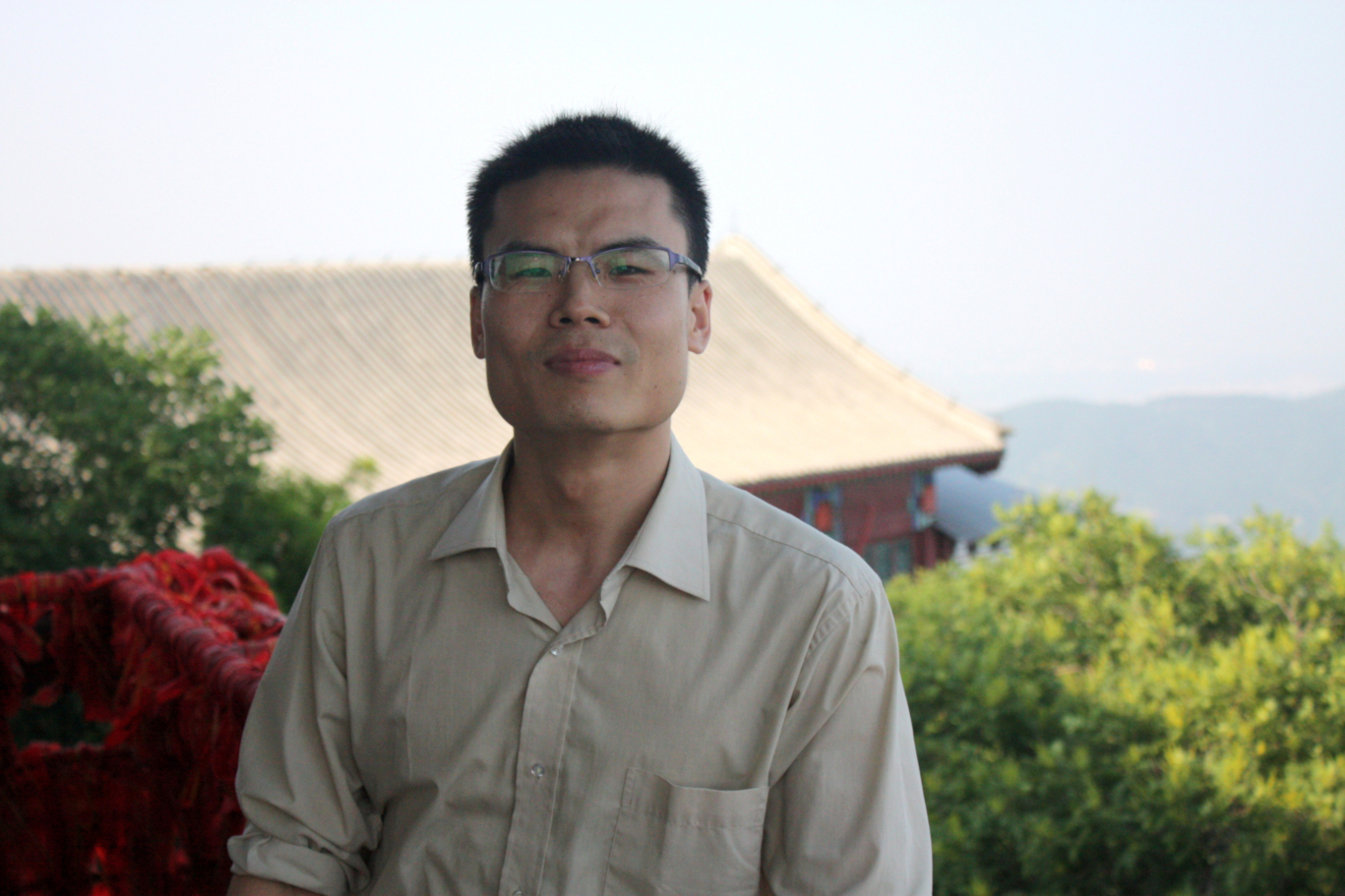How to Find a Great Language Tutor (So You’ll Reach Fluency Faster)
It was when I tried learning Chinese (specifically, written and spoken mainland Mandarin) that I realized I needed a teacher. I tried learning myself. Oh, how I tried. I got nowhere. I thought I was maybe getting old (I was 30).
I’ll get back to that story in a moment.

Now, after studying seven languages – with five successes (that I can say I speak) and two works-in-progress that I'll need to re-visit – I’ve come a long way in learning about studying languages. It has been, in part, a journey of learning about myself.
One of the most important things I learned was the power of a good language teacher, and it's something I wanted to share to help others avoid the same mistakes.
Why Get a Language Teacher at All?
- “Learn a language for free online!”
- “Subscribe to our podcast for free daily lessons by native speakers!”
- “Learn on the go with our amazing AI-driven app!”
If you’re learning a language, you’ve probably come across claims like these countless times.
The same basic claims have been in place for decades. When I first started my journey, these were in the form of textbook and cassette language courses (yes, cassettes… but don't worry, I later upgraded to CDs!). These days, there are apps and online courses. They're all useful parts of your toolkit. But if you’ve ever had a great tutor, you’ll know how helpful they are to learning a language.
After teaching myself my first two languages (Latin-based ones), I thought I could teach myself anything. Many of us amateur learners might have the same feeling. Think about how many of these sound familiar to you:
- “There are so many free resources out there… let me go through those first.”
- “I’m not sure I’m ready to learn in a purely French environment yet.” (I get it. It's scary.)
- “I’ll just finish Duolingo and see how far that’ll take me.” (Seems so tempting at the outset!)
There’s nothing wrong with any of this, but it’s typical of what people say before they’ve found a great teacher and before they realize how a teacher can multiply the speed at which they learn.
What a Great Language Teacher Can Do
Now, back to my failed attempts to learn Mandarin. No matter what I tried, apps, books, online courses, nothing seemed to work.
So, being in China where things were cheaper, I tried teachers. They were all nice, and I learned something with all of them, but it wasn’t until I met a few teachers at one academy (and one teacher in particular) where my learning started to skyrocket. Every day I felt pressured, yet encouraged. I learned more words and didn’t feel guilty about the ones I hadn’t learned (as long as I tried). My teacher seemed to understand the language, me, and the science of learning in a way no other teacher had before.
Some of the teachers knew English, but they never spoke a word of it to me. (I knew a few hundred words of Chinese – definitely not enough to communicate well.)
What was so good about these teachers? Let me dig a little deeper into what makes an effective language tutor.
The Three Kinds of Language Teacher You’ll Meet
There are three kinds of language tutor. This is a rough approximation, but it has rung true for every paid teacher I’ve met (not language partners).
The Friend
This is someone roughly your age, or younger, who seems a bit hip and fun. They like to teach you slang. They often speak pretty good English and have a decent understanding of false friends, and interesting ways of expressing things in the language you’re learning.
They’ll start lessons with “So, what shall we learn today?” only after a good deal of banter and general conversation. You might have some questions, then they come up with an idea of what to talk about.
They’re cheap. Among the cheapest. They’re nice, and I highly suggest holding on to them as friends via chat. And maybe even of going out with them and their friends, speaking a mix of English and their language or whatever.
Needless to say, a paid teacher-student agreement is a precarious point on which to start a relationship (but who knows, it might work out for you!)
The School Teacher
These are slightly more expensive than The Friend, and will teach you more, but not in a very efficient way.
They’ll usually start their first lesson by getting you to read something out of one of your textbooks or something they’ll bring along. They’ll ask you to buy the textbook. It’s fine, sometimes great.
Every lesson will consist, in large part, of you reading from the text, then doing the exercises with them out loud. You’ll be asked to do more exercises for next time, to pre-read, and to get ready to read that text out loud in class.
You’ll learn things, but at a slow pace. It won’t be that interesting.
The Professional

The Professional is the best kind of teacher you can hope to find and the main subject of this post.
More than anything else, The Professional is a coach. They'll guide you along your language journey with inspiration and knowledge, letting you set the general direction, but never letting go of the wheel themselves.
They can be expensive (but aren't always), costing 1.5-3x what The Friend or The Schoolteacher cost. But despite the increase in cost, they'll save you money in the long run because you'll be pushed harder, learn more efficiently and stay engaged longer.
The Professional teacher knows the science of teaching. They know you, as they spend time getting to know your strengths and weaknesses. They can find content. They can optimize the time in class and outside of class. Every time you show up, you’ll feel like you’re making progress, and feel embarrassed if you haven’t prepared to make the most of this precious time. They won't give you work that just makes you feel good. In fact, the opposite. They'll drill you on things they know you struggle with.
I’m thinking specifically of a few teachers I had in the past: Teacher Feng (冯老师) and Teacher Qin(秦老师) in Beijing.
Let’s look at how to find this kind of teacher.
How To Find the Professional Language Teacher
First, how do you know if someone is The Professional?
Here are the characteristics of a professional language teacher:
They’ll rarely (if ever) speak to you in English (or your native tongue)
This is really hard but it pays off. In the first month, you may feel like you didn’t understand much, but you’ll learn a lot faster. It’s amazing how much hand gestures can help. You’ll learn through context, too. For example, I never realized how often I need to say “I’m sorry I was late, the traffic was really bad” until I had to try to say it a few times and my teacher taught me, quite early in the learning process!
Importantly, The Professional knows how to speak their language in a way they can help you learn. They’ll speak clearly and articulately, using correct grammar, often simplifying sentences and words (using the equivalent of words of “one syllable”). This means they’re sharp and are able to think in concepts, not words. This isn’t easy to do. Try it yourself. Speak to someone without using any idioms. For example, how would you say “I’m just trying to manage expectations” in one syllable words?
The Professional will occasionally use English to express a difficult concept, like “document” or “enthusiasm”. Some of my teachers didn't speak English but had learned these words over time just because there was no other way to express them for lower level students. But this is a last resort.
Finally, The Professional might introduce other people into your lesson so you can listen in on conversations, knowing it’s beneficial to hear the language as it’s naturally spoken. I personally love this and felt like I was getting extra value from a real conversation with another person.
They ask you what you want to learn, what your interests and goals are, but don’t let you get away with anything…
When I started learning Chinese, I emphasized that I just wanted to learn to speak in professional business situations. Thus, I didn’t want to focus so much on writing. My tutors tailored my lessons to that, and we did a lot of reading and speaking practise.
I appreciated, however, that they didn’t let me get away with not learning how to read and write. They explained to me that it’d be fine for the very basic level, but for any person wanting to progress to intermediate would have to learn to read and write. I’d just have to climb that mountain. It wasn’t until I was doing it that I realized how important it was, that it help me retain words and learn them contextually so I could speak better.
A good teacher will also find materials that support your interests. Want to learn comedy? You’ll study video clips of great comedians. Want to sing karaoke? You can study song lyrics. Want to study business? They’ll find articles on modern business ideas, tailored to your level.
They’ll adapt to how you learn, understanding what you learn quickly and what you struggle with. Like a good coach, they’ll encourage you to overcome obstacles you have, whether it’s in pronunciation, grammar or retaining vocabulary.
The Professional will even go so far as to modify an article or de-emphasize words they think you don’t have to learn at this point. They’ll add context that you’d never have been able to add yourself.
They optimize your time in class and out of class
A professional teacher doesn’t make you read or do exercises in class, other than perhaps a few verbal drills to get you started. Nor will they review your homework in class.
The best teachers make you do homework, pre-reading and writing and then send them materials in the evening for them to review and discuss with you. They will spend their entire time in class speaking with you, focusing on what they perceive to be your weaknesses.
After an hour of class with a professional teacher, you’ll feel EXHAUSTED from the exertion, like you’ve just run a marathon.
They understand the science of teaching and learning
A great teacher knows how the brain learns.
A few nuggets I learned about learning from great teachers:
- You may study 50 new words a day in an intense course, but you’ll only ever retain 60% of them. That’s fine. The teacher won’t make you feel bad. They know it’s normal.
- You learn through associations, such as context, mnemonics, jokes and patterns. For example, I’ll never forget the word for “squid” because of the phrase “it’s because he’s a squid” – the words “because” (由于) and “squid” (鱿鱼) are homonyms. I learned that one from a teacher.
- You need to sleep to learn. A great teacher will be concerned if you’re exhausted and will dial down the amount of homework so it’s manageable. (This was revolutionary for me – no more guilt!)
Typically a great teacher learns the science of pedagogy in a formal environment, like with a masters degree in education. As I said above… these teachers aren’t cheap!
They have a love for their language and culture and are sensitive to yours
Finally, great teachers truly love their own language. They’ll show this by talking about authors, poets, comedians and know a vast repertoire of sayings and idioms. They have an enthusiasm that’s infectious – they can’t wait to share it all with you.
This infectious enthusiasm means they're more likely to be prepared, have resources at hand and will always guide you in your learning, knowing what you're likely to be interested in in the future. This is important because it means you'll be engaged for longer, never getting to a point where you're bored. As hyper-polyglot Alex Rawlings said in this interview of the best teachers: “The most inspirational ones just focused on giving you the confidence to speak.”
Where Do You Find “The Professional”?
Wow, they sound great, right? Well, here’s the hard part. A great teacher is hard to come by, but there are three main sources.
1. Private Language Academies

One benefit of private academies is the great bonds you form with a small group of dedicated students.
Yes, you can go to an expensive language academy and learn from the best. These academies will be small, private institutions, where classes are given 1:1 or at most 1:2 (with someone at your level, but not at the junior levels). They’ll have fairly strict rules like a minimum amount of time you have to commit every week, a language while at the school, and a homework commitment.
For many people, these are the easiest places to start. They offer a good learning environment, a chance to choose from a few great teachers, the opportunity to mingle with other serious learners (some of my best friends I made in the foreigner community) and structure. They’re also pretty easy to find – just ask around, or look on forums.
The main downside of private language academies is that they’re expensive, even in foreign currency terms. This is reflected in their clientele, which I've found to be either US-based university students using part of their large student loan, professionals whose company is paying for a language-learning programme, or professionals who are advanced in their workforce and taking time off to invest in themselves.
Note that these private academies are NOT universities or large schools, which are far cheaper and place you with a dozen or more other learners in a class.
2. Ex-Language Academy Tutors
In local classifieds (quite often on local expat websites) you can find tutors advertising that they were trained at a well-known language academy but now are private tutors. This can mean better rates, as well as greater flexibility, such as them being able to come to your home or office.
I personally prefer these, but they’re quite hard to find. Word of mouth is a good source too. Start by asking the local expat community.
3. italki
I’ve had great success with italki (our review is here) in learning languages on the side, and plan to continue to use it for future languages (on deck are Arabic, Swahili and Bahasa Indonesian).
When you start with italki (online 1:1 tutoring via Skype), you can screen in two steps. Firstly, as Fluent in 3 Months founder Benny suggests, mention in your profile and in your first message (either when booking, or when sending them a message) what you're looking for. Specifically, mention the critical four things:
- Your level (e.g. that you're a beginner)
- That you want all instruction to be in the target language
- That you want to focus on spoken practise during the lesson
- The subject area(s) you're most interested in
Secondly, with italki, you get the opportunity to try out as many tutors as you want. Do this! See their style. Assess them on the above criteria. You need to see:
- Can they actually teach your level speaking only the target language? It's a skill, as I mentioned above.
- Are they comfortable teaching the subject areas you're interested in?
That’s It!
Now you have my process for finding “The Professional” who will get you to fluency faster in your target language. Wishing you all the best as you search for an amazing language tutor!



Social